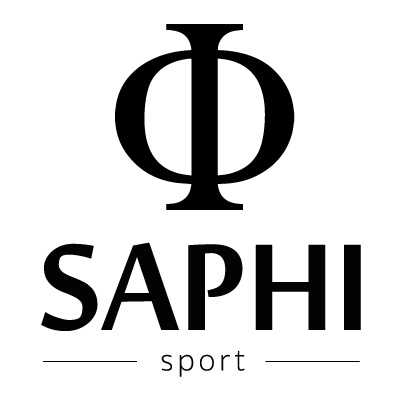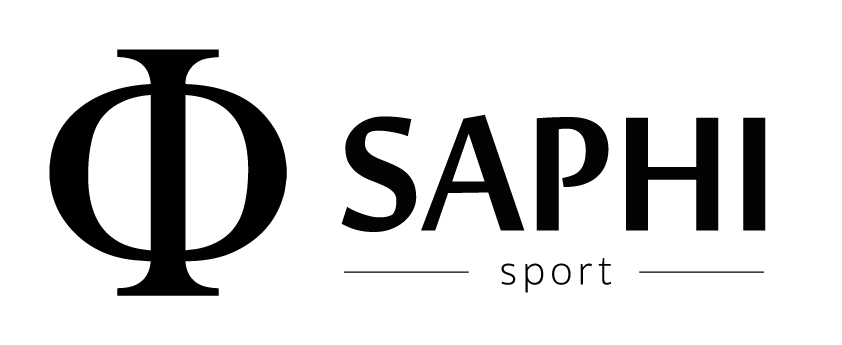
Beauty, challenges of husband-wife/player-coach Kelly and Jordan Cheng dynamic
HERMOSA BEACH, California — The first thing you notice about the criticisms of Kelly Cheng is that none of them make much sense.
Then again, fleetingly few of them ever have.
When Cheng and Sara Hughes announced their landscape-altering partnership last fall, forming what would quickly become the top-ranked team in the USA, and Cheng’s husband, Jordan, was kept on staff as the head coach, a whiff of potential nepotism was difficult to miss.
Despite Jordan helping Kelly — then Claes — and Sarah Sponcil to a pair of four-star gold medals in 2021 and a berth into the Tokyo Olympic Games, where they became the youngest team in USA history to compete in an Olympics, the online community, as it goes, was divided over whether Jordan was actually the right man for the new job … or if he was simply Kelly’s husband, along for the ride.
Which, when you take more than half a second to think about it, doesn’t make any sense at all. At first blush, the husband-wife link may appear to have played a factor. Kelly, after all, gets to spend the five or six months out of the year on the road with her husband. Their relationship, unlike many on the AVP and Beach Pro Tour, is not limited to pixelated FaceTimes across the world at odd hours of the day. It’s an undeniable benefit, and not an insignificant one.
“It is amazing that we get to do this together,” Kelly said.
It’s also nearly impossible, a perpetual testing of patience, emotional acuity, and Jedi mind tricks to deliver constructive — and occasionally pointed — criticism to your wife, who is also your player, who also, technically speaking, is your employer, who earns your paychecks, the size of which depends on her ability on the court, which is largely influenced by you, and who also wants to just, you know, enjoy the occasional minute or two not talking about volleyball, the sport around which your life and relationship revolves.
Good luck.
“We’re not doing it because it’s easy and comfortable,” Jordan said, laughing. “I told Kelly, ‘Hey, if I’m going to coach you, it’s because I believe I’m the best fit and I believe I’m one of the best coaches out there and I believe I can help you win a gold medal.’ I’m not going to sabotage my wife’s career, I’m not going to sabotage my own coaching career that I’ve worked really hard on.
“It’s funny, I think people get the perception — I’m not coaching peewee basketball where I have my son in the starting lineup and I’m telling everyone to pass him the ball so he can score 30 points and at the end of the year I can go ‘MVP goes to my son.’ This is our livelihoods, this is our careers. The tension and troubles it causes, it’s hard, it’s really hard. It presses and squeezes us a lot in our relationship and there’s constant questions of ‘Is it working? Is it worth it?’ ”
Is it working?
You be the judge.
At the time of this writing, Cheng and Hughes are the No. 4 ranked team in the Olympic race and No. 3 in the world ranks. They are one of five teams to have won an Elite16 gold medal and one of an even smaller number who appear capable of beating Brazil’s Ana Patricia Silva and Duda Lisboa. They went 16-2 in four tournaments on the AVP, their only losses coming to teams ranked No. 2 (Kristen Nuss and Taryn Kloth) and No. 4 (Melissa Humana-Paredes and Brandie Wilkerson) in the world.
By any objective measure, it is working on the court. The fact that they are still happily married suggests the same off of it.
“When I go home, first thing I want to do is watch film with Kelly,” Jordan said. “This play wasn’t great, that play we gotta get better on. In the marriage context, I gotta get better about I can’t always talk about volleyball, because I can do it all day. I’ll go and watch film by myself in the corner.”
Here Kelly smirks, says: “While I’m cooking lunch.”
“It’s volleyball a lot, and I for sure lean on the side of ‘OK Jordan, now can I have my husband back for just a few hours?’ ” Kelly added. “Can we not talk about volleyball, and of course it’ll still come up. It takes over a lot of our time.”
Jordan knows he’s the right man for the job in the same sense that he knows he’s not the only man for the job. Coaching isn’t just a side hustle for him, as it is for many in the professional beach world, where the low pay and absence of benefits make it nearly impossible to be a full-time pursuit. For Cheng, howevever, coaching is his craft. He’s studied it, learned from the greats at Pepperdine (Marv Dunphy), Irvine (David Kniffin), and on the beach (Tyler Hildebrand). He’s noticed a trend: Teams who win gold medals at the Olympics, and who consistently podium throughout the process, don’t have a single coach.
“They had an army,” he said.
And so he built his.
Kelly Cheng and Sara Hughes win in Tepic/Volleyball World photo
Hughes and Cheng hired Gustavo Rocha, the longtime assistant at USC, to be their assistant coach. When they practice in Huntington Beach, Jake Gibb often joins, tweaking Kelly’s block here and the timing of certain defensive moves there.
“I’m probably the first one to challenge Kelly and call her out and that’s not always the best, and that’s part of the reason we hired other coaches on staff,” Jordan said. “I looked at all the other gold medalists, and it seems like they had an army. I remember telling Kelly that I need help, I know I am a great coach and I believe I can help you win a gold medal but I think it takes an army.”
Even with the army, even with a top-five world ranking, even with two AVP titles, a silver medal at the Gstaad Elite16 and a gold in Tepic, the criticisms still persist. Such is the price of admission of being an elite athlete, performing on a stage viewed by tens of millions at the Olympics and hundreds of thousands in the years between. Kelly’s used to it by now.
“People hated my game in college,” she said, this in spite of that game at USC being good enough to win four national-championship rings, rip off a 103-match winning streak, amass 181 total wins and graduate with a .943 winning percentage.
Many had a similarly odd distaste for her game in her developing years as a professional with Sarah Sponcil, where they deployed a then-trailblazing, now-widely-used, offensive system that leaned heavily on Sponcil’s pinpoint passing and Kelly’s aggressive optioning.
“I’ve heard it almost my entire career and it’s been a challenge for me because I let it affect me for a really long time,” Kelly said. “Seeing comments online, it eats away at me. With social media it’s hard to ignore it but I’ve been fighting really hard the last year and a half to shut that out.
“I love the way I play and I love getting to do what I get to do and I love the quote that Jordan says, because those people don’t know me and for whatever reason they have a very strong opinion of me. I can’t please everybody and I’m not going to change the way I play to please anybody. It’s just me staying in my lane and that lane goes where I want it to.”
It a lane that often goes off the beaten path. When Cheng played a Queen of the Court in Hawaii with Brittany Hochevar, she routinely went over on the first contact, scoring point after point after point. People hated it, thought it breached an unwritten rule in an unwritten book of beach volleyball etiquette that one must score on the third contact because that’s just the proper way of doing things. Just as people hated her options, mocked her hand-sets — low, decently slow — and, now, her jump-sets, and the errors that have inevitably ensued from refining with a new skill.
“Here’s the box that the game is played in, and I think I’ve always gone outside the box and just seeing what’s up,” she said. “It’s fun to explore and tinker and sometimes it goes awry.”
Kelly Cheng and Sara Hughes celebrate their Doha title/Volleyball World photo
It’s one of the many blessings of being as talented, and having the work ethic to develop that talent, as Cheng is. She has the temerity to explore and test and tinker with new skills not just at practice, like most normal human beings, but in, say, an AVP semifinal, as she did in Chicago when she began tossing in jump-sets. Where many laud 21-year-old Miles Partain for doing the same thing, criticism often befalls Cheng.
“On YouTube, I read a comment: ‘I don’t care who won so long as Kelly doesn’t win.’ The people that know you the least often have the most to say about you, and the strongest opinions,” Jordan said. “I’ve always told her that there is always going to be someone who doesn’t see your worth. Don’t let it be you. If you live for people’s approval, you’re also going to die by their rejection.”
Such can be the price tag of greatness. The easy solution is to shut off the input. Kelly limits her time on social media; Jordan doesn’t have any at all. They continue to break the mold, with the faith that all of this — the husband-wife-player-coach dynamic, the Olympic aspirations, the maverick style of plays — will work. And even if it doesn’t work on the court as they’d like it to, with an Olympic gold medal dangling from their necks, they understand there are bigger things in life outside of volleyball. Already, they’re building on those bigger things.
Last winter, Jordan and Kelly assembled Hughes, Geena Urango, Julia Scoles, April Ross, and Hailey Harward in a mentorship program in which each athlete was paired with a younger athlete. They rented an AirBNB in Newport Beach and for three full days, the teenagers hung out with their role models. They practiced together, ate meals together, and each of the professionals put together a workshop for the kids. Since, each mentor has met with their respective mentee once a month, to catch up, chat, serve in whatever role they can.
“It was so special,” Kelly said.
It all is, everything about this journey they’re on, because to them, it all makes sense, and it’s all worth it.
“The thing that’s holding us together is our why and why we do it,” Jordan said. “We get to dream together about what we get to do. It’s something that reminds us. You get torn down and why am I doing this? Who am I doing it for? Who do I want to become? It’s worth it.”
Kelly Cheng celebrates at the Gstaad Elite16/Volleyball World photo
The post Beauty, challenges of husband-wife/player-coach Kelly and Jordan Cheng dynamic appeared first on Volleyballmag.com.
Read More Volleyballmag.com Beach, Pro Beach, Olympics Beach


